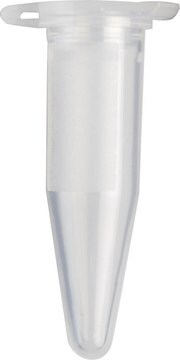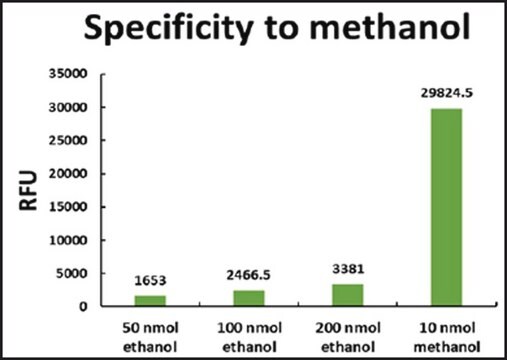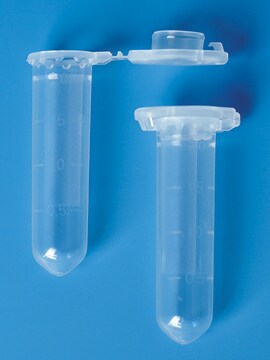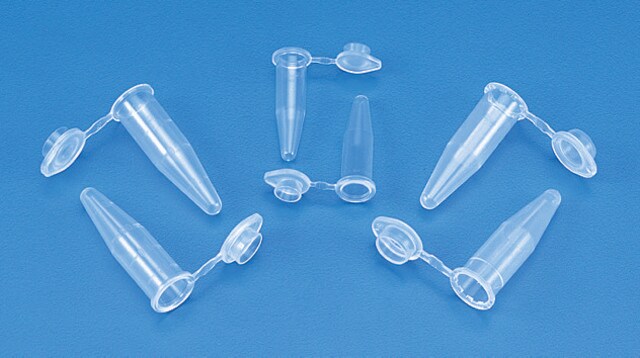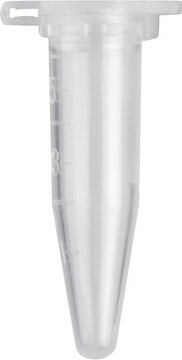MAK076
Ethanol Assay Kit
sufficient for 100 colorimetric or fluorometric tests
Sign Into View Organizational & Contract Pricing
All Photos(2)
About This Item
UNSPSC Code:
12161503
NACRES:
NA.84
Recommended Products
usage
sufficient for 100 colorimetric or fluorometric tests
application(s)
cosmetics
food and beverages
detection method
colorimetric
fluorometric
storage temp.
−20°C
General description
The new Ethanol Assay Kit, MAK481, is now available! Ethanol is a psychoactive component of many commonly consumed drinks where it acts as a central nervous system depressant. After ingestion, ethanol is absorbed into the bloodstream via the stomach and small intestine. Ethanol is largely metabolized by the liver but is also secreted in urine or through respiration. The monitoring of ethanol levels is also important in fermentation processes. The ethanol assay kit provides a simple and reliable method for the quantification of ethanol.
This kit is highly sensitive to the presence of short-chain alcohols (ethanol, methanol, and propanol). Storage or use of this kit in the vicinity of alcohol vapors can result in the uptake of the alcohols by kit components, resulting in very high backgrounds.
This kit is highly sensitive to the presence of short-chain alcohols (ethanol, methanol, and propanol). Storage or use of this kit in the vicinity of alcohol vapors can result in the uptake of the alcohols by kit components, resulting in very high backgrounds.
Application
Ethanol Assay Kit has been used :
- to measure the levels of ethanol in yeast cell culture supernatant and to study the link between metabolism and chromatin structure
- to determine the ethanol levels in compound beverages and foods
- to measure ethanol content in vinegar
Suitability
Suitable for determining the concentration of ethanol in serum, plasma, and other body fluids as well as in beverages and growth media.
Principle
Ethanol concentration is determined by a coupled enzyme reaction, which results in a colorimetric (570 nm)/fluorometric (λex = 535/λex = 587 nm) product, proportional to the ethanol present. The Ethanol Assay Kit provides a simple and reliable method for the quantification of ethanol in serum, plasma, and other body fluids as well as in beverages and growth media.
replaced by
Signal Word
Danger
Hazard Statements
Precautionary Statements
Hazard Classifications
Aquatic Chronic 3 - Eye Irrit. 2 - Flam. Liq. 2
Storage Class Code
3 - Flammable liquids
Flash Point(F)
57.2 °F - closed cup
Flash Point(C)
14.0 °C - closed cup
Certificates of Analysis (COA)
Search for Certificates of Analysis (COA) by entering the products Lot/Batch Number. Lot and Batch Numbers can be found on a product’s label following the words ‘Lot’ or ‘Batch’.
Already Own This Product?
Find documentation for the products that you have recently purchased in the Document Library.
Metabolite profiling and volatiles of pineapple wine and vinegar obtained from pineapple waste.
Roda A, et al.
Food Chemistry, 229, 734-742 (2017)
Detecting ethanol and acetaldehyde by simple and ultrasensitive fluorimetric methods in compound foods.
Zachut M, et al.
Food Chemistry, 201, 270-274 (2016)
Reduced histone expression or defect in chromatin assembly induce respiration.
Galdieri L, et al.
Molecular and Cellular Biology (2016)
M Zachut et al.
Food chemistry, 201, 270-274 (2016-02-13)
There is a need for simple, accurate, and rapid analysis of ethanol (Eth) and acetaldehyde (AA) in a wide variety of beverages and foods. A novel enzymatic assay coupled to formation of fluorescent chromophore is presented. Eth detection was further
Marie N Hansen et al.
The Journal of experimental biology, 219(Pt 24), 3875-3883 (2016-11-02)
In mammals, treatment with low doses of nitrite has a cytoprotective effect in ischemia/reperfusion events, as a result of nitric oxide formation and S-nitrosation of proteins. Interestingly, anoxia-tolerant lower vertebrates possess an intrinsic ability to increase intracellular nitrite concentration during
Our team of scientists has experience in all areas of research including Life Science, Material Science, Chemical Synthesis, Chromatography, Analytical and many others.
Contact Technical Service
